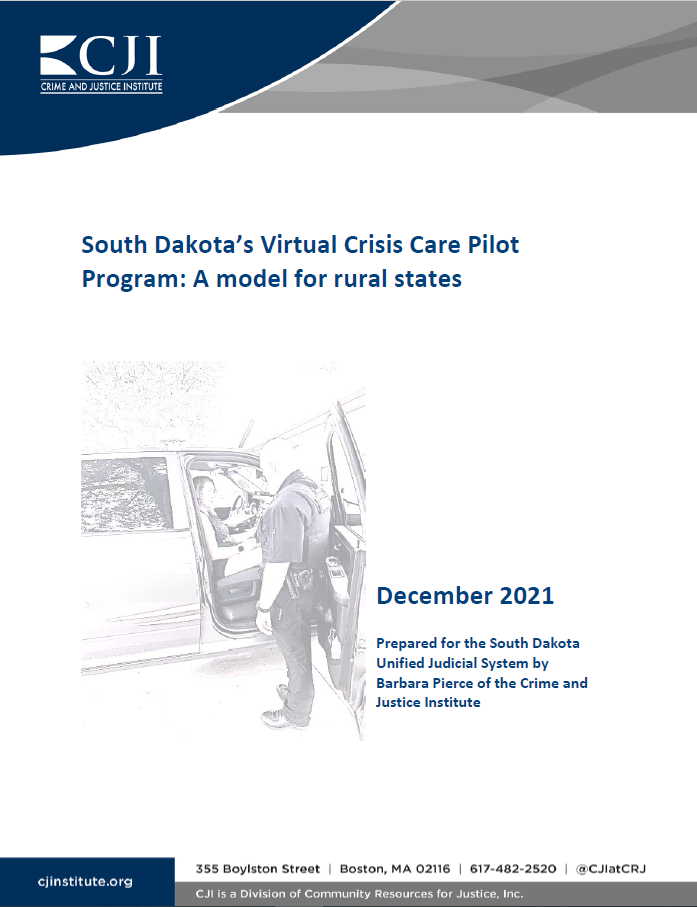
Click here to read the full report
Click here for more information about the Virtual Crisis Care model
From January 2020 to June 2021, 18 sheriff’s departments and probation in one judicial circuit in South Dakota piloted an innovative virtual mobile crisis response program to help law enforcement respond to people experiencing a mental health crisis. In the 18-month pilot period, eight of every 10 people with whom Virtual Crisis Care was used were diverted from involuntary hospitalization. This includes people who were able to remain at home and a small percentage of people who voluntarily admitted themselves.
This report details the utilization and outcomes of the program, sustainability plan and lessons learned in implementing this type of model.
CJI helped design and implement the pilot program, with support from the Leona M. and Harry B. Helmsley Charitable Trust and working with stakeholders in South Dakota. Virtual Crisis Care provides law enforcement and probation officers with access to mobile crisis services via tablets and telehealth technology in communities where these services did not exist before. The program allows law enforcement to seek assistance from behavioral health professionals, who can assist with deescalation, stabilization and safety assessment during a crisis situation wherever the crisis is occurring. Also, following the crisis, Virtual Crisis Care connects individuals to local mental health resources for follow-up care.
The program was designed specifically to increase access to crisis care in rural communities, and it was used most often with individuals experiencing suicidal ideations, depression, or aggressive and disruptive behavior.
Based on the early success of South Dakota’s pilot program, CJI partnered with Helmsley and stakeholders to replicate the program in Nevada, with the pilot beginning in 11 law enforcement agencies in June.